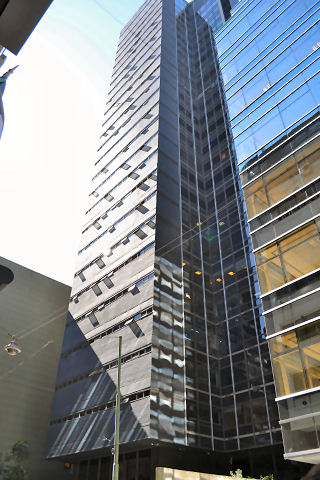dwaynebarr5434
About dwaynebarr5434
The Rise of Private Jet Flights: Luxurious within The Skies
In recent years, the demand for private jet flights has soared to unprecedented heights, remodeling the aviation business and redefining luxurious journey. As soon as a privilege reserved for the elite, private jet travel is now turning into more and more accessible to a broader vary of travelers, due to innovations in expertise, evolving enterprise practices, and altering shopper preferences. This text explores the factors driving the expansion of private jet flights, the benefits they provide, and the challenges that lie forward for this burgeoning sector.

The private aviation market has experienced a outstanding resurgence, particularly following the COVID-19 pandemic. As business airways struggled with security issues and fluctuating schedules, many travelers turned to private jets as a safer and more versatile alternative. In response to a report from the Nationwide Business Aviation Association (NBAA), private jet flights within the United States elevated by 23% in 2021 in comparison with the previous 12 months, and this pattern shows no signs of slowing down. The allure of avoiding crowded airports, long safety strains, and potential exposure to illness has made private jet travel a most well-liked selection for many.
One of the key components contributing to the rise of private jet flights is the appearance of technology that has made booking and accessing private jets simpler than ever before. Firms like Wheels Up, JetSuite, and VistaJet have developed user-friendly apps that enable travelers to e-book flights on-demand, much like how one would hail a experience-sharing service. This democratization of private aviation has enabled a wider audience to expertise the advantages of flying privately, even if only for particular events or enterprise trips.
Furthermore, the growth of fractional ownership and jet card packages has made private jet travel more financially viable for those who may need previously thought-about it out of reach. Fractional ownership allows multiple individuals to purchase shares in a jet, sharing the prices and tasks of maintenance and operation. Jet cards, on the other hand, present pre-paid flight hours that can be utilized on numerous aircraft, offering flexibility with out the commitment of ownership. These models have attracted a brand new generation of travelers who value convenience and luxurious but are also aware of their expenses.
The benefits of private jet travel lengthen past mere comfort. For enterprise travelers, time is commonly the most beneficial commodity, and private jets permit them to maximise productiveness. With the flexibility to fly directly to smaller airports closer to their remaining vacation spot, private jet travelers can considerably cut back journey time. Moreover, onboard amenities reminiscent of high-speed web, private assembly spaces, and gourmet catering allow professionals to conduct enterprise meetings in the air, enhancing effectivity and effectiveness.
Leisure travelers have additionally embraced private jet flights as a method to boost their journey experiences. The luxurious of customized service, spacious cabins, and the flexibility to customise itineraries has made private aviation a beautiful choice for household vacations, romantic getaways, and particular celebrations. The privacy and exclusivity of flying on a private jet enable travelers to loosen up and take pleasure in their journey with out the stress and distractions often associated with industrial flights.
Nevertheless, the speedy development of private jet flights has not come without its challenges. If you adored this article and also you would like to be given more info about privatejetcardreview generously visit our web page. Environmental considerations have emerged as a significant problem, as private jets are often criticized for their carbon footprint. Whereas commercial aviation accounts for a considerable portion of global greenhouse gas emissions, private jets, regardless of representing a smaller section of the industry, are disproportionately impactful on a per-passenger foundation. As awareness of local weather change continues to rise, private aviation companies are increasingly exploring sustainable practices, resembling investing in gas-environment friendly aircraft, using sustainable aviation fuel (SAF), and implementing carbon offset programs to mitigate their environmental impact.
Regulatory challenges also loom over the private aviation sector. As demand increases, so does the need for infrastructure improvements at airports and air visitors administration programs. Many airports, notably those serving standard private jet destinations, are grappling with capacity issues and aging services. To accommodate the rising variety of private flights, industry stakeholders must work collaboratively with authorities businesses to make sure that the mandatory investments are made to modernize and broaden airport infrastructure.
In addition, the private jet industry faces competition from rising technologies, corresponding to electric vertical takeoff and touchdown (eVTOL) aircraft and supersonic jets. These innovations promise to revolutionize air travel by providing sooner, extra efficient, and environmentally friendly alternatives to conventional private jets. Companies like Joby Aviation and Increase Supersonic are at the forefront of this revolution, and their developments might reshape the panorama of private aviation in the approaching years.

Regardless of these challenges, the future of private jet flights seems vibrant. The mix of technological developments, evolving shopper preferences, and a growing appreciation for the benefits of private aviation suggests that the sector will proceed to thrive. As extra people seek personalised journey experiences that prioritize security, convenience, and luxury, private jet flights are poised to become an integral part of the broader travel ecosystem.
In conclusion, the rise of private jet flights represents a significant shift within the aviation trade, driven by altering consumer behaviors and technological innovations. Whereas challenges such as environmental concerns and regulatory hurdles stay, the advantages of private aviation—namely, comfort, effectivity, and luxury—are compelling sufficient to maintain its development. Because the industry adapts to fulfill the calls for of a new era of travelers, private jet flights are prone to become an more and more standard choice for these searching for to elevate their journey experiences.
No listing found.
